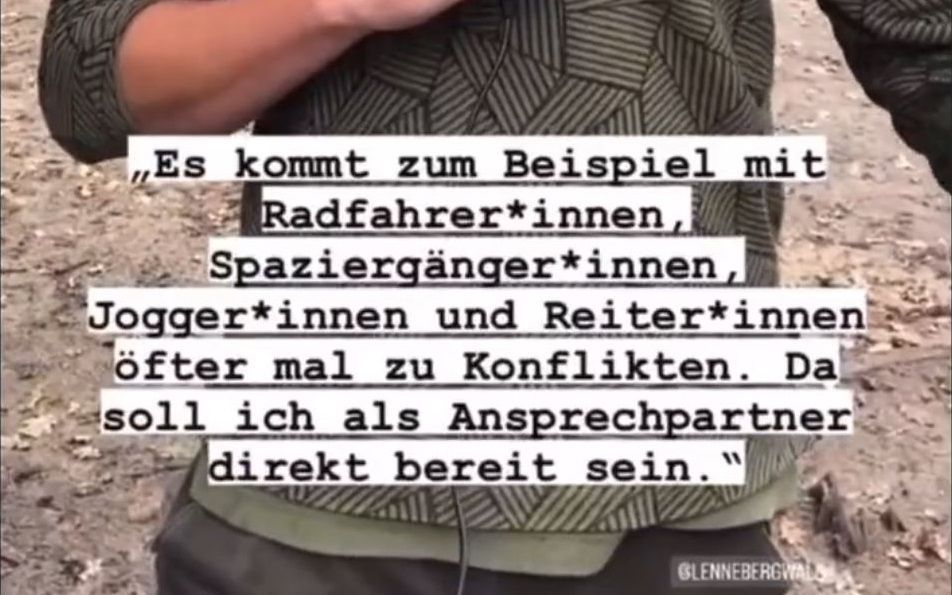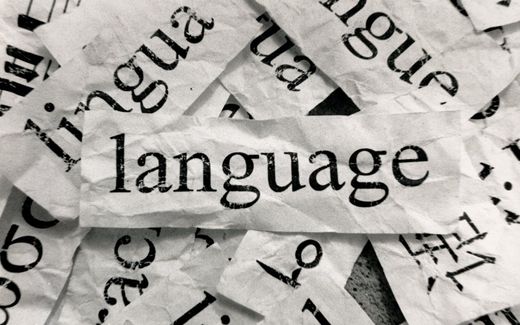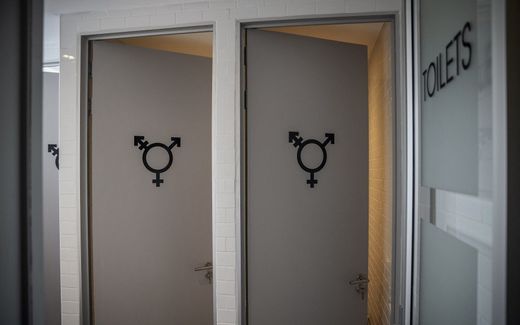Broadcaster edits answer to make it more ‘inclusive’

Screenshot of the video of which the subtitles were made more 'inclusive'. Photo Twitter, Verein Deutsche Sprache (VDS)
Central Europe
A German public broadcasting company has come under fire for editing the words of an interview with a forest ranger.
According to Bild, the incident occurred while interviewing one of Germany’s youngest forest rangers on Instagram. During Mainz’s “Das Ding” interview, 21-year old Fabian Förster says on Twitter: “As a city forest ranger, I'm out in the forest as a contact person for people.” And: “There are often conflicts with cyclists, walkers, joggers and horse riders.”
Förster used standard German plural forms for these words, but when the “Das Ding” editors wanted to put subtitles in the video, they changed the words, “cyclists, walkers, joggers and horse riders” to “Radfahrerinnen, Spaziergängerinnen, Joggerinnen und Reiterinnen,” to include the female gender, according to an article from Standard. The German publication Bild also reported that the word, “people,” was edited as “Waldbesucher*innen” (forest visitors) to make it more ‘gender-inclusive’.
Critics of the changes say that the editorial team found Förster's statements politically incorrect and changed the video’s subtitles to reflect more ‘gender neutral’ terms. They also conclude that “since Förster expressed himself in writing, no correction was necessary”, according to Standard.
Written texts
“Das Ding, which belongs to the larger public ARD broadcaster, SWR, released a statement in response to the changes:
“This is a mistake." The SWR-does not want to exclude anyone in principle in the speech: “However, this only applies to texts that are written by our editors; subtitles are not included. We have specified our editorial guidelines to this effect in order to avoid such misunderstandings and the resulting errors in the future.”
The move to make words more ‘gender-inclusive’ has become more popular within the German language. The US-based National Public Radio (NPR) reported that the German airline, Lufthansa, threw out the phrase, “ladies and gentlemen,” and a “gender-neutral Bible” has been written by German scholars. In 2019, Hanover became the first city in the country to require “gender-neutral language” and introduce the “gender star” in all its official communication channels. The “gender star” is an asterisk that “is placed within a noun” as a reference for “men, women, and nonbinary people.”
"There are more important issues in the world"
A lawyer who goes by the name of “Hendrik” said in the NPR article that he “can’t stand” the marks that are used to indicate references to “multiple genders”.
“Once you start addressing the third gender, it's not long until you're required to address a fourth or fifth and, for me as a lawyer, this gets too complex linguistically,” he said. “Legal texts are not there to serve such grievances. There are more important issues in this world.”
Related Articles






